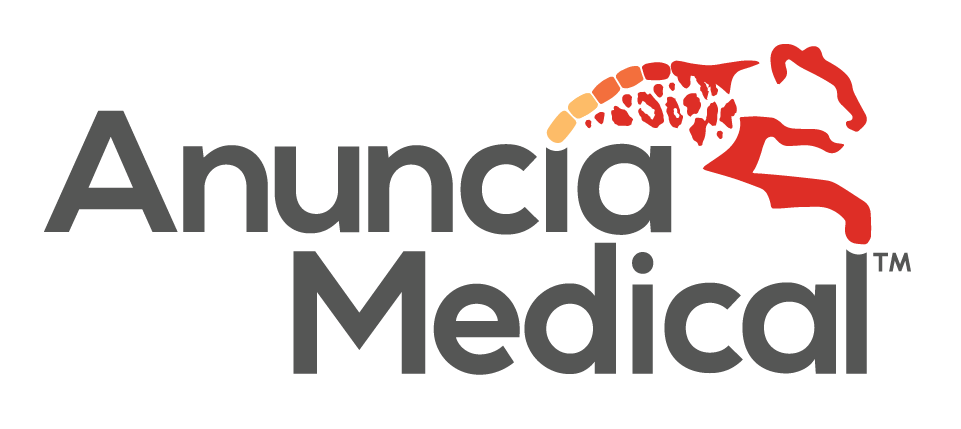Anuncia Medical Announces First Successful US Implant of the Company’s ReFlow™ Device with Sonolucent Cranial Plate to Noninvasively Visualize Flushing of Hydrocephalus Shunts
Johns Hopkins First in the Country to Implant Novel FDA-Cleared Devices in Tandem for the Treatment of Pseudotumor Cerebri
SCOTTSDALE, Ariz., June 3, 2024 – Anuncia Medical Inc. (“Anuncia” or the “Company”), a Company specializing in advancing innovations for implantable and external cerebrospinal fluid (CSF) management systems, is pleased to announce the successful first implant of the Company’s FDA-cleared ReFlow™ Mini Flusher device in tandem with a “sonolucent” cranial plate (Clearfit® Cover, Longeviti, Baltimore MD) to allow noninvasive visualization of the implant functioning inside the fluid spaces of the brain using ultrasound.
Performed by neurosurgeon Mark Luciano MD, PhD at The Johns Hopkins Hospital in Baltimore, Maryland, the patient previously required multiple brain surgeries to manage their “Idiopathic Intracranial Hypertension (IIH),” also referred to as “pseudotumor cerebri” because symptoms mimic those of a brain tumor. IIH is a chronic neurological condition characterized by elevated intracranial pressure and small lateral ventricles, the fluid spaces inside the brain that create cerebrospinal fluid (CSF) that cushions and bathes the brain. IIH can occur in children or adults but is most common in women of childbearing age who are obese. This condition can often cause severe symptoms, including vision problems that can lead to vision loss, frequent hospitalizations, and ongoing health concerns.
The second-generation ReFlow Mini Flusher breakthrough device is indicated for use in patients living with hydrocephalus or similar conditions like IIH that may be treated with a shunt. It is US FDA-cleared to be used in line with any shunt system brand to flush the patient’s CSF back into the ventricular catheter to improve, restore, and maintain hydrocephalus shunt flow, with a simple finger depression of the flusher’s soft dome implanted beneath the patient’s scalp. Occlusion or clogging of the ventricular catheter by blood, debris, or tissue is the primary cause of shunt failure. Noninvasive flushing with the ReFlow Mini Flusher to remove or prevent catheter clogging can be performed in-clinic by trained clinical staff or anywhere by a trained patient/caregiver, as directed by the neurosurgeon, without affecting the shunt’s CSF flow regulating function or causing over drainage. The ClearFit Cover is fastened over the hole in the patient’s skull, called a “burr hole,” to protect the brain and provide cosmesis. It also creates a window through which ultrasound can penetrate to provide fast, live intracranial imaging to assist Neurosurgeons in assessing shunt function and visualization of other relevant intracranial anatomy in-clinic and in the emergency department.
Ultrasound has long been used for real-time imaging inside the human body, except the Central Nervous System (CNS), because ultrasound cannot penetrate bone. Traditionally, the only way to image inside the cranial compartment was through Computerized Tomography (CT) or Magnetic Resonance Imaging (MRI), which can be time-consuming and may require sedation. With sonolucent cranial plates, improvements in ultrasound image quality, and ultrasound training in neurosurgeon training programs, the ability to see inside the cranial compartment can be conducted in real time in any location with access to ultrasound equipment. This new capability can help assess relevant intracranial and intraventricular anatomy to help Neurosurgeons manage hydrocephalus patients from a multitude of complex etiologies like IIH, often characterized by small ventricles that creates a challenging environment for implanted shunt systems.
“For too long, Neurosurgeons treating hydrocephalus, as well as patients and caregivers, have been requesting a noninvasive, simple solution to help keep implanted shunts flowing,” reported Anuncia Medical CEO Elsa Chi Abruzzo. “The ReFlow can be implanted in minutes along with the neurosurgeon’s preferred shunt type to empower patients with potential access to lifesaving therapy at home. It may also indicate that the ventricular catheter is likely flowing if the flusher dome can be fully depressed and refilled. Combined with a sonolucent cranial plate, it may give Neurosurgeons additional tools to assess shunt function, including visualizing ventricular catheter flushing in real time.”
After successfully launching in June 2023, the ReFlow Mini Flusher is now available at leading institutions for use by some of the most well-respected neurosurgeons in the United States. The ReFlow Mini Flusher is expected to be available internationally later this year.
About Anuncia Medical Inc.
Anuncia Medical is a neurological device company solving the significant unmet needs in cerebrospinal fluid (CSF) management and neurocritical care through clinically validated, noninvasive, cost-effective, ‘breakthrough’ technologies that are designed to monitor and treat patients at home or in-clinic. Anuncia aims to empower patients in their care journey and provide peace of mind. Built on a commitment to high-quality standards, evidence-based medicine, and strong ethical behavior for almost a decade, Anuncia Medical Inc. is a trusted partner for neurosurgeons. For more information, visit www.AnunciaMedical.com, and follow Anuncia on LinkedIn, Twitter, Facebook, and Instagram.
About ReFlow™ System Mini and ReFlow™ Mini Flusher
Available in the U.S. only, the ReFlow™ System Mini represents a platform technology designed to improve the function of CSF management devices in the OR, the ICU, and at home. The ReFlow™ System Mini and ReFlow™ Mini Flusher are 510(k) cleared by the U.S. FDA for use in the treatment of hydrocephalus as a part of a CSF shunt system. The ReFlowTM System Mini is a small, implanted system consisting of a flushing device and ventricular catheter. When implanted in line with a commercially available shunt, it can be actuated by noninvasively pressing on the flusher dome. It is designed to deliver a small amount of fluid toward the ventricular catheter for restoration, increase, or maintenance of flow by clearing catheter flow holes. The implanted ReFlow™ Mini Flusher is meant to be actuated by trained users, in clinical or non-clinical settings, at the personalized direction and supervision of the patient’s physician. The ReFlow™ System is a prescription device sold by or on the order of a physician.
Patients are advised to consult with a qualified healthcare professional to determine if this product is right for them. Important Safety Information & Risks: For Indications for Use, Warnings, Precautions, and other safety information, please refer to product labeling.


